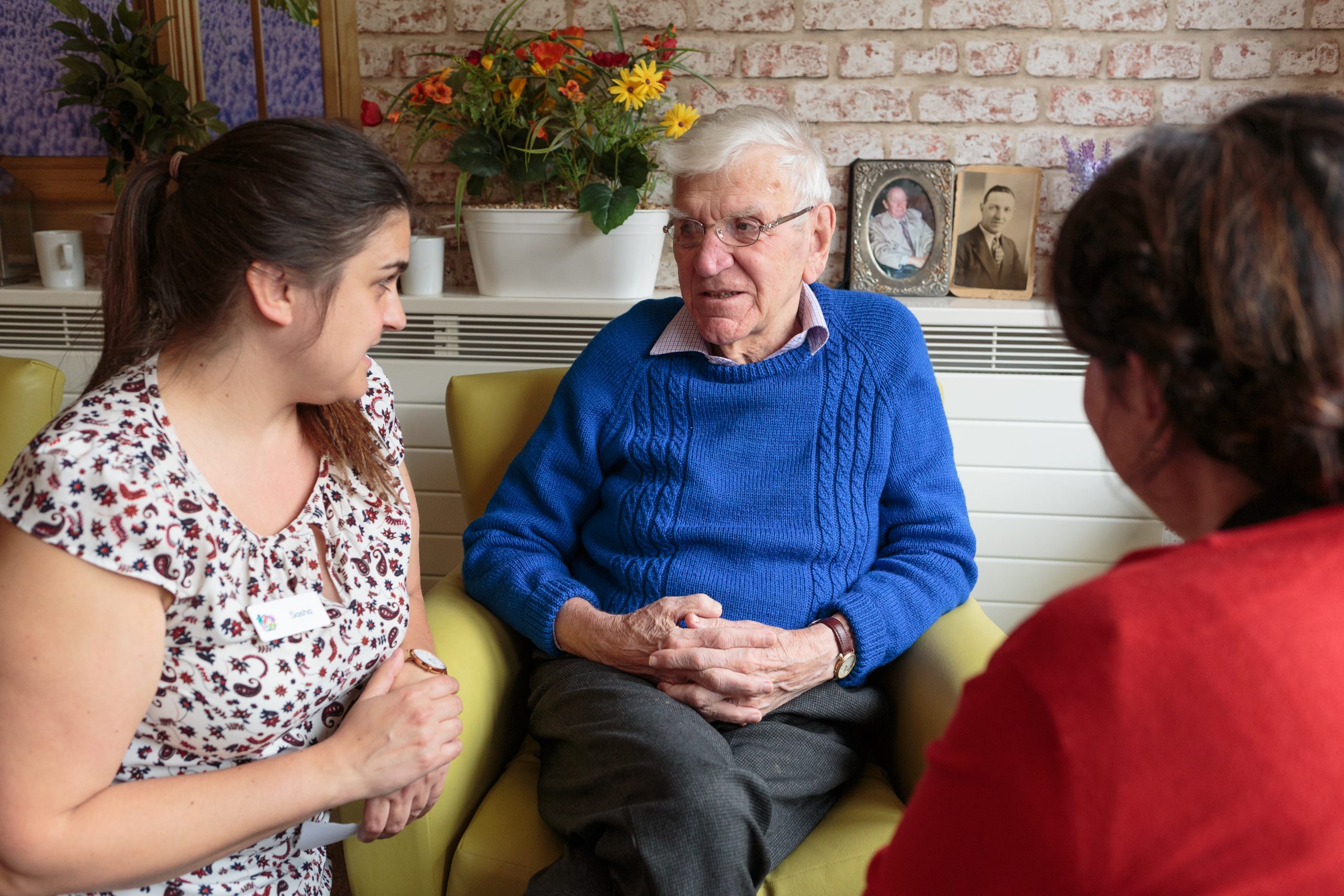
The first conversation you have with a loved one about moving into a care home is always going to be difficult. For an elderly person, there is the fear of leaving their own home, as well as losing their independence. While for their carer or family member, the last thing they want to do is upset the person they love or make the wrong decision.
However, it doesn’t have to be this way. We have helped hundreds of families make this transition, and along the way have picked up some helpful, thoughtful and empathetic observations.
To help you navigate these conversations, our Head of Care, Valerie Egan, shares her top tips:
-
Start Early
It is much easier to discuss care home preferences in a hypothetical way! Start this conversation with your loved one and other family members before a care home is necessary and make it an evolving discussion. An accident or medical crisis can suddenly necessitate a higher level of care, and if you don’t know your loved ones’ needs and preferences, the transition will prove more difficult.
For many residents who require 24-hour support due to a dementia diagnosis, more often than not, by the time they are ready to live in residential care, they won’t be able to identify they have dementia. This makes having the conversation early even more important.
-
Talking to Someone Living with Dementia
However, if you haven’t been able to have this conversation with your loved one, here are some tips for communicating effectively with someone living with dementia. Choose a quiet space with no background noise, face your loved one so they can see your expression, speak slowly and clearly, and use short sentences. It is very important that you don’t rush through what you want to say. Allow a pause between each point for your loved one to process the information. This also gives them a chance to respond.
-
Keep Your Loved One Involved
Everyone wants to be able to choose where they live and the kind of care they receive. Age does not change this preference. Do everything you can to bring your loved one on care home tours, show them websites and ask them to talk to their friends and see if they have any recommendations. It can also be useful to involve other family members in this process too. It will help everyone agree about what is the right type of care home and when the right time to move is.
-
Talk Positive
Some elderly people see the move to residential care as negative; it is a place where they will spend their final days in the twilight of their life. At Borough Care, we don’t believe in settling into a grey existence, we want our residents to live their lives in colour! We encourage them, within the restraints of their mobility issues or dementia diagnosis, to get out and about, take up new hobbies and meet new friends. And, because we take care of everything else – the cleaning, cooking, laundry, the garden and personal care, residents have less stress and more time to do things they enjoy.
-
Let it all Sink In
Hopefully, if you have started the conversation early enough, this will be simple. For most of us, our first reaction to change is to reject it. However, if your loved one, as well as other family members, can come to the conclusion that your relative will be happier and healthier within the comfort and support of a care home, any conversations about the practicalities of a move will be much easier.
We hope these tips will help you have that first conversation with your loved one. If you’re looking for more expert advice and support you may be interested to read our other articles: Spotting the Signs your loved one may benefit from a care home and When is the Right Time to Consider a Care Home. Alternatively, you can speak to a friendly member of our team on 0161 475 0140.







